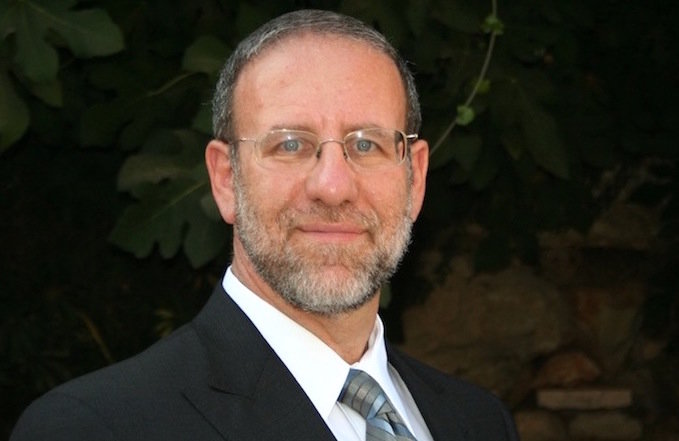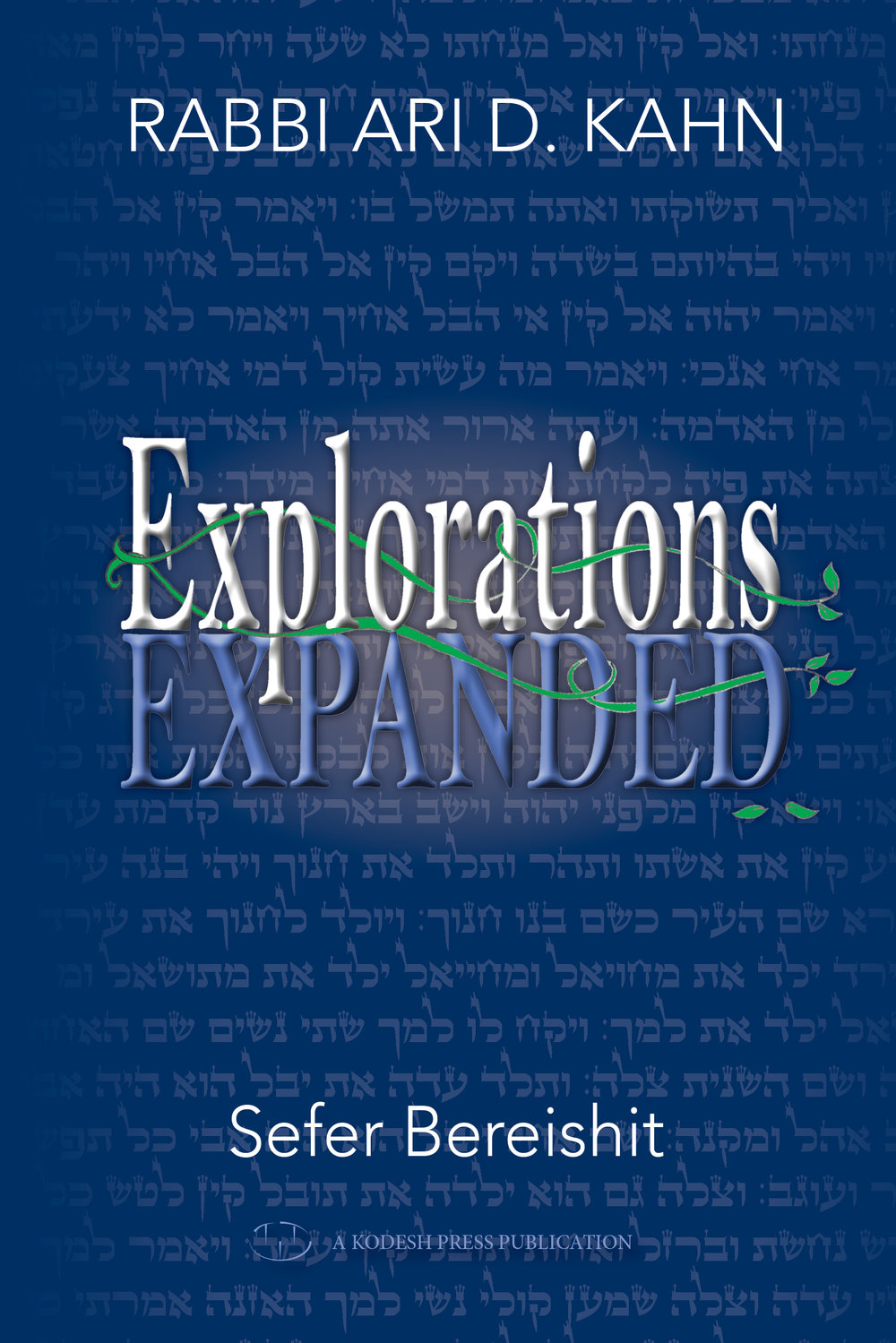Rabbi Kahn’s ‘Explorations Expanded' to Bereishit
This week’s essay is the introduction to the revised commentary on the Book of Genesis by Rabbi Ari Kahn titled “Explorations Expanded,” published by Kodesh Press.
Rabbi Kahn director of the overseas students program and a senior lecturer in Jewish studies at Bar Ilan University. He received his semichah from Yeshiva University where he studied with two of our greatest sages, Rabbi Joseph Soloveitchik and Rabbi Aharon Lichtenstein, both of blessed memory.
Over 20 years have elapsed since I wrote and subsequently published my first book, Explorations. Over 20 years have passed since I was warned that the shelves of Jewish book stores are packed with volumes on the parasha, and every year, as new ones are published, the older ones are quickly forgotten. I am extremely thankful that Explorations is still in demand, has been reprinted a number of times, and has since been translated into a five-volume edition in French.
Even more gratifying than its longevity is its impact: So many thoughtful readers have reached out to me to express their excitement with the ideas and the Torah insights in Explorations. Over the years, these ideas have been quoted and cited, used as the basis for study of the weekly Torah portion, and served as a guide for teachers and pulpit rabbis.
In the interim, I have had the privilege to write and publish other volumes, including a five-volume series titled Echoes of Eden, which unlike Explorations, included Hebrew source materials and detailed footnotes. My goal for Echoes of Eden was to produce not merely a set of books to be read, but sefarim to be studied. Although I labored to make the ideas accessible to “entry-level” readers, more advanced students found full-text sources on each page, and scholars were able to use the referenced materials for chavruta study or in the classroom. Countless readers, scholars, and laypeople alike, have expressed their appreciation for the access Echoes of Eden provides to the insights and conclusions in those books, as well as to primary sources, especially those that are relatively obscure. …
Many years ago, a young woman told me that her idea of the study of Torah is a pursuit of revelation. Her comment was so simple yet so profound, for at times those of us who spend many years in yeshiva run the risk of focusing on the ideas and losing sight of the revelation. In all Torah learning one should experience what Rav Soloveitchik described as “feeling the breath of eternity on your face.” I wish to thank that young woman for helping me focus my learning and teaching, for making sure that I never lose sight of the rendezvous with the Divine. I would like to thank her for editing and proofreading my writings, for being my best critic and greatest fan. I would like to thank her for marrying me, for raising our children, for creating a home of Torah and chesed. I would like to thank her for encouraging me to write (even on erev Shabbat when the house could have used an extra hand!) and teach (all over the world — even if it meant long travel and weeks apart), and for sharing with me the excitement of a new idea — at any hour of the day or night. …
No writer can be certain how the fruit of his or her labor will be received, but when Torah is transmitted through the written word, something magical can happen. If the community of Israel is receptive to the work, it enters a corpus which has a life-force of its own. It attains a level of holiness.
A short time after Explorations was first published, I happened to be learning in an unfamiliar Beit Midrash, and I noticed a young man sitting nearby, raptly reading from an open volume; nothing unusual, given the setting — other than the fact that this student was reading Explorations. Although I tried to continue my own learning without being distracted, I couldn’t help but glance his way every now and again, hoping that his facial expressions might tell me if he was enjoying what he was learning, or perhaps not.
What happened next was also not unusual: He finished the chapter he was reading and closed the book. But as he did so, he gave the sefer a gentle kiss. More than any positive assessment by a reviewer or any admiring citation by another author, more than any of the words of praise that have been written or spoken about my work in the years since, it was that gesture, in that fleeting moment, that gave me an overwhelming sense of gratitude. In my own small way, I had written a book that had been included in the Masorah of the Jewish people, and I had been allowed to enter the most holy fraternity.
I have never hoped for any greater accomplishment.

 44.0°,
Mostly Cloudy
44.0°,
Mostly Cloudy 







